
Police Tape 101: Everything You Need to Know
Police tape, commonly known as crime scene tape, is an important tool used by law enforcement to secure…
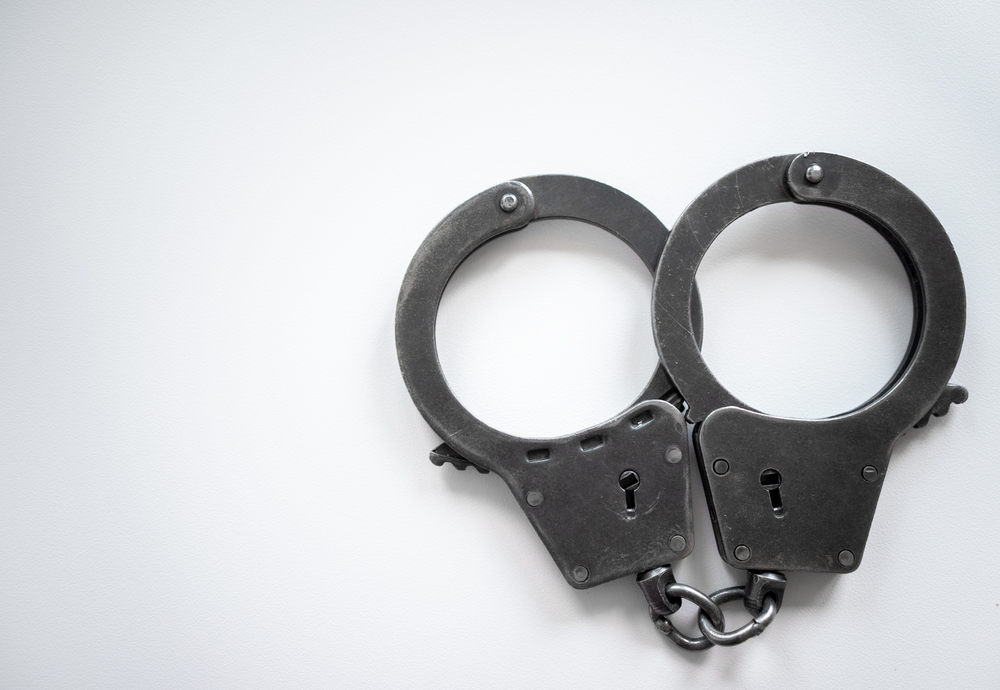
It’s easy to forget handcuff maintenance, as I have in the past, but it can make a significant difference.
When you invest in a quality pair, the last thing you want is for them to fall victim to dirt, grime, and rust.
With my favorite go-to tips, you can easily make sure your cuffs stay as pristine as possible for longer.
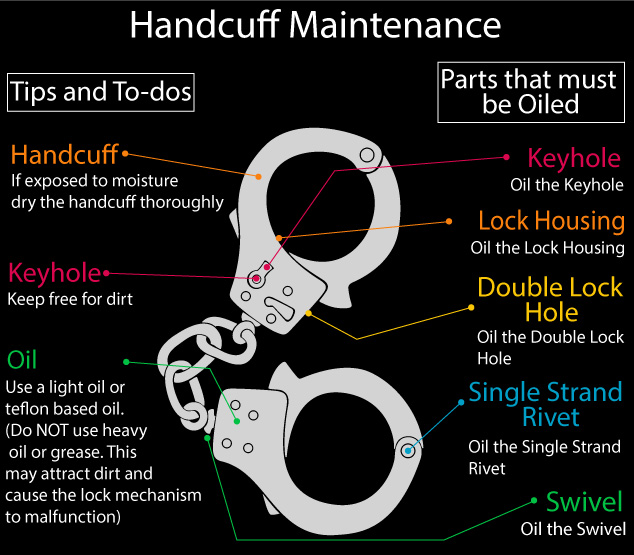
In my opinion, a crucial part of handcuff maintenance is to make sure you have an excellent set to start with.
I prefer a hefty set of stainless steel cuffs compared to the cheaper partial-plastic models on the market.
Not only are the double-bar plastic cuffs more likely to break over time, but they are also easier to pick.
I look for the highest-quality metal for my safety, which is where stainless steel comes into play.
I also try to steer away from chained cuffs, especially since they allow the suspect to move more freely when restrained.
Hinged, on the other hand, are faster to use and reduce suspect mobility ten-fold.
Choosing the right cuffs depends primarily on personal preference; however, it can be useful to consider the most popular pairs.
I often find that talking to coworkers can give anyone a good idea of what cuffs are best for what they’re looking for.
Try not to seek advice from the guy selling you the cuffs because they’ve likely never used them in a real-world scenario.
This article explains in detail what kind of handcuffs that exists.
Before you start treating the metal with cleaners and oils, you need to start breaking in your new handcuffs.
When you get back from the store, take your cuffs out and fold them as if they were in your holster.
I also like to cycle the cuffs by pressing the bar against my leg or my patrol car seat.
This process helps make sure the inner workings move effortlessly so that I’m always ready to go.
I also like to make sure that I cycle through my cuffs regularly, so there’s an even amount of wear on each pair.
Otherwise, I’m stuck trying to remember which pair are new and which ones need to be retired.
The first step to maintenance is pretty simple. My cuffs are similar to my favorite baseball glove; they need to be oiled.
Oiling not only makes it easier to break them in, but it also preserves their integrity for longer.
After every clean, I ensure that I oil the cuffs since it’s one of the best ways to prevent rusting, especially in the winter.
Whenever the stainless steel touches water, whether it be from sweat, rain, or snow, I make sure to apply an adequate amount of oil.
However, it’s essential to ensure the oil is removed after cleaning; otherwise, your suspects will have an easier time slipping out.
The most crucial time to lubricate the cuffs is when you first receive them, allowing them to work effectively.
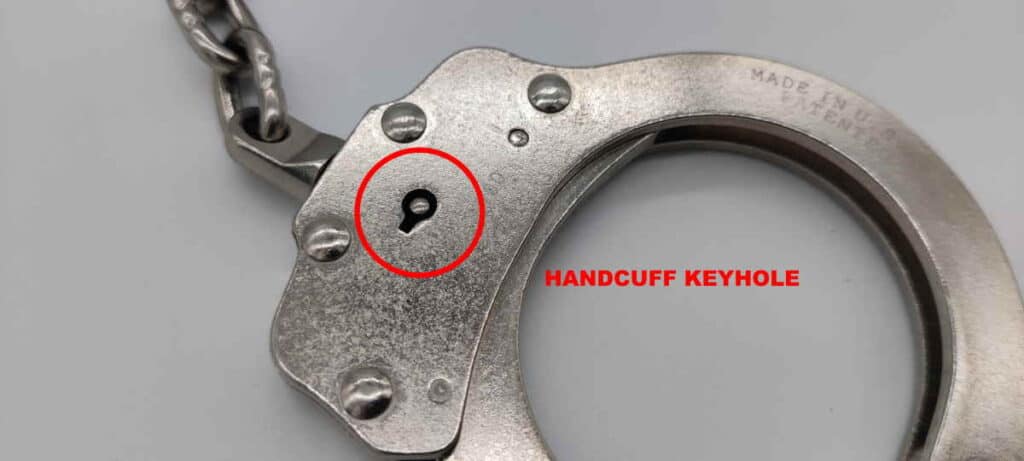
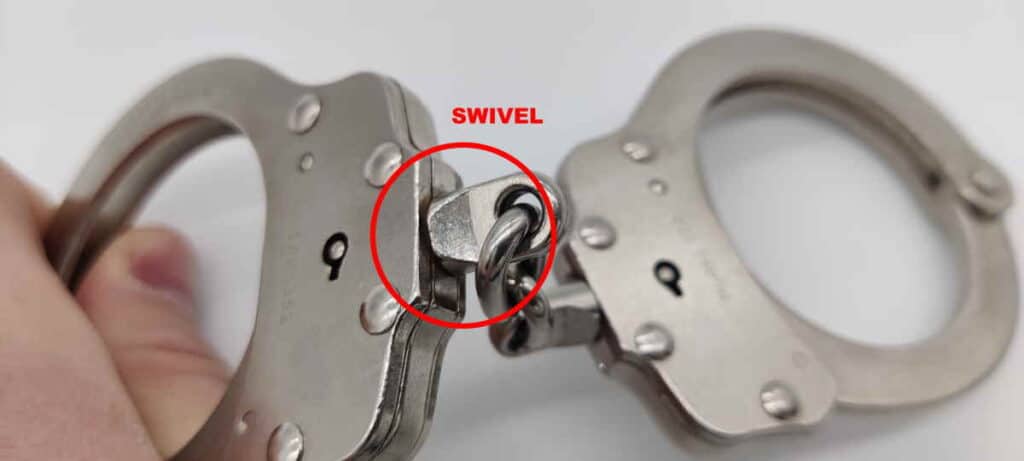
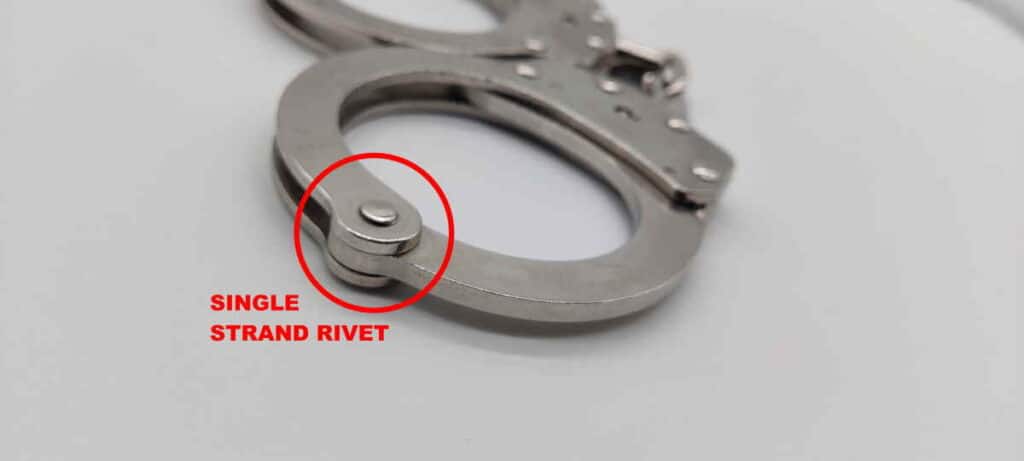
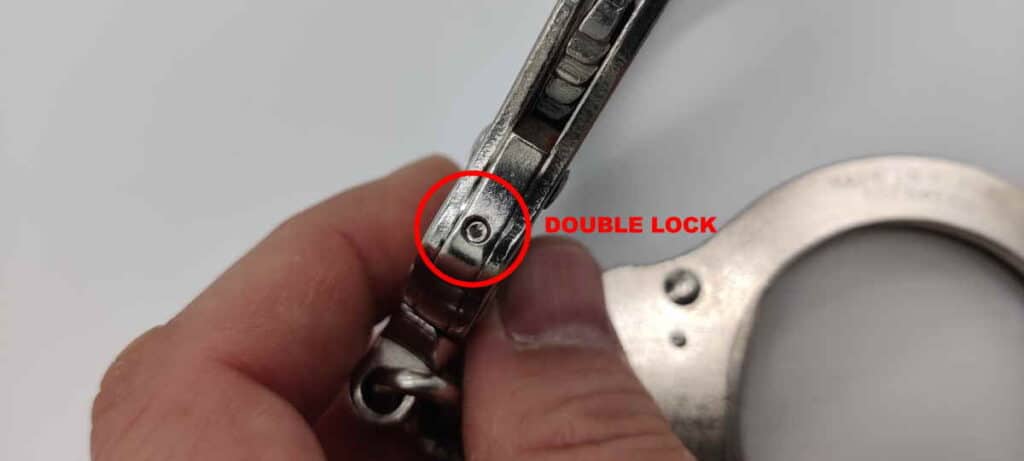
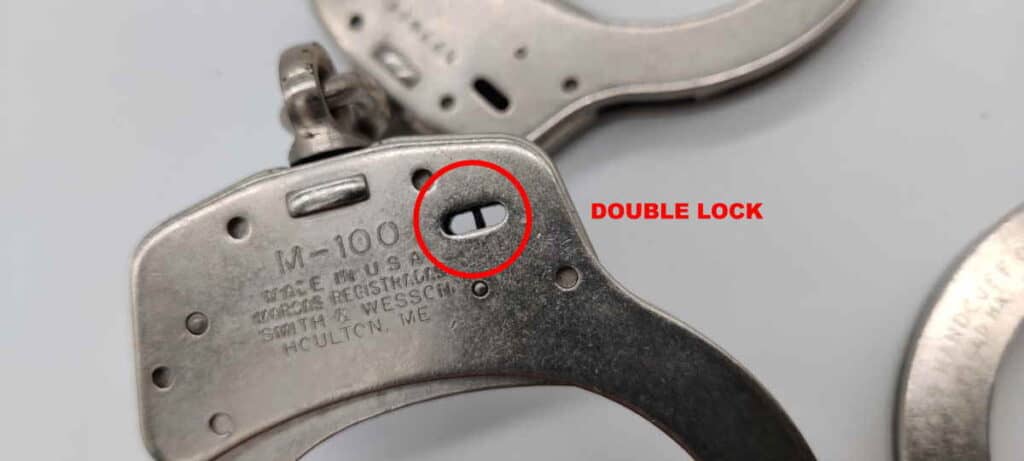
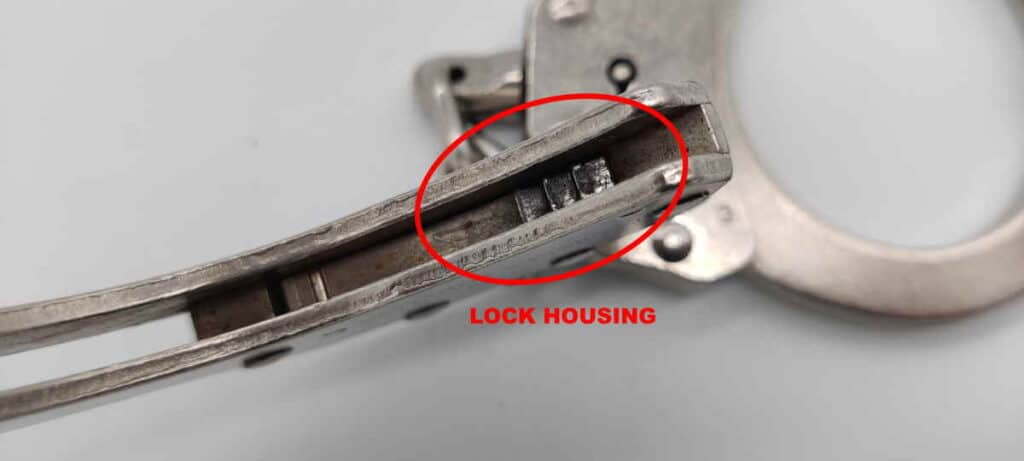
Another important part of avoiding rusty handcuffs is to make sure I clean them regularly.
Instead of cleaning them only when they get soiled, I treat the medal to a thorough clean on a regular schedule.
If I want to take it a step further, our department has an ultrasound cleaner and lubricant bath that offers a deep clean.
I reach for rubbing alcohol for regular maintenance because it’s inexpensive and useful but can be corrosive to metal.
Alcohol is known to kill plenty of pathogens, which is my primary concern, but it must be applied liberally.
As an extra protective measure, I opt for oil that has Teflon as the main ingredient to create a barrier.
The Teflon essentially acts as a shield between the metal and the alcohol, protecting the handcuff’s integrity.
This process allows me to disinfect the surface layer without eating through the layers of metal beneath.
When I’ve finished sanitizing, I then reapply the Teflon-treated oil to replace the protective coating.
The other option that I’ve found prevalent in the department is a special handcuff cleaner.
There are a few manufacturers that make a unique cleaner designed to disinfect cuffs without damaging their material.
It can be more expensive than $0.97 rubbing alcohol but can significantly improve the metal’s quality.
Plenty of guys at the academy used to use handcuff cleaner and offer disinfecting and lubrication. Again, it all depends on personal preference and your budget.
This step is likely one of the essential parts of learning how to clean handcuffs.
Even though it can be tempting to apply a lot of oil, you need to make sure most of it is removed.
Otherwise, you’ll begin to notice the cuffs’ inner workings can get gummed, leading to higher failure rates.
When struggling with a suspect, the last thing I would want is to have cuffs slipping in my grip.
I typically use a soft microfiber cloth to wipe away excess oil that doesn’t add slickness to my hands.
The final step to learning how to clean handcuffs is to make sure you have the perfect belt placement in mind.
Some guys like to carry one to three sets, while I prefer to stick to two reliable sets at all times.
I find that one pair doesn’t give you a backup, while three can be too much to maintain.
One set of my cuffs always stays on my left side, as I’m right-handed, a few inches from my belt buckle.
I also keep a set on my right side, behind my weapon, which allows me to access both cuffs at any time quickly.
Another critical part of handcuff placement is to make sure your pairs aren’t rubbing against each other.
When metal rubs against itself, it can wear away, causing rusty handcuffs before you know it.
By keeping them separate, it’s convenient, safe for me, and protects the metal.
I’ve learned that there’s no point in struggling with cuffs while also working with a suspect.
Taking good care of your police gear is the first part of being a responsible officer.
Not only does it ensure that I’m safe with a reliable pair at all times, but it also makes it easier to detain.
As one of the essential tools of the job, I take special care with handcuff maintenance.
Interested in learning more about handcuffs? Be sure to check out our article about the different types of handcuffs.

Police tape, commonly known as crime scene tape, is an important tool used by law enforcement to secure…
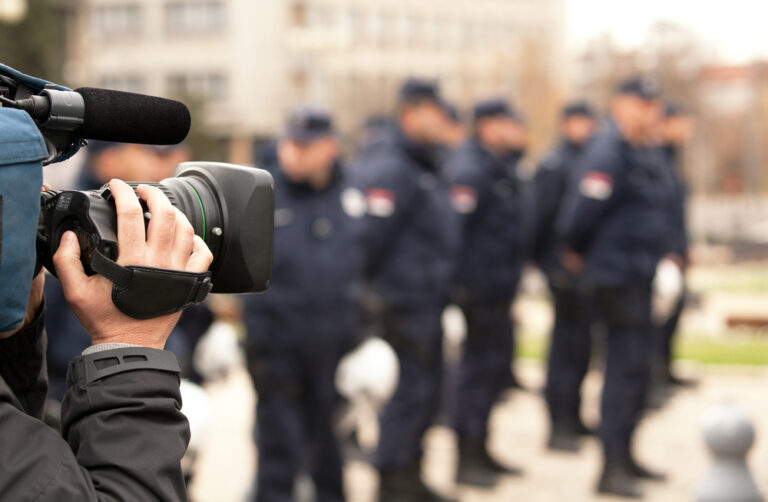
The police are called daily regarding various incidents of public interest. It is our responsibility to provide the…
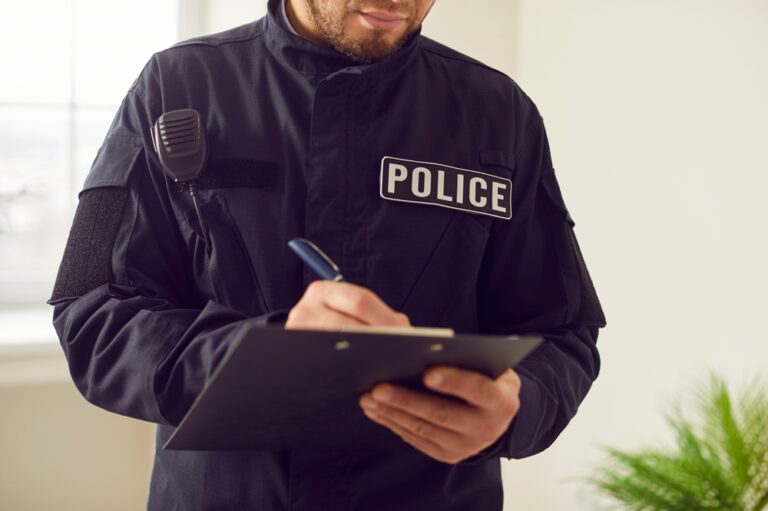
Many police officers experience terrible, traumatic events in the line of duty. A significant number of police officers…